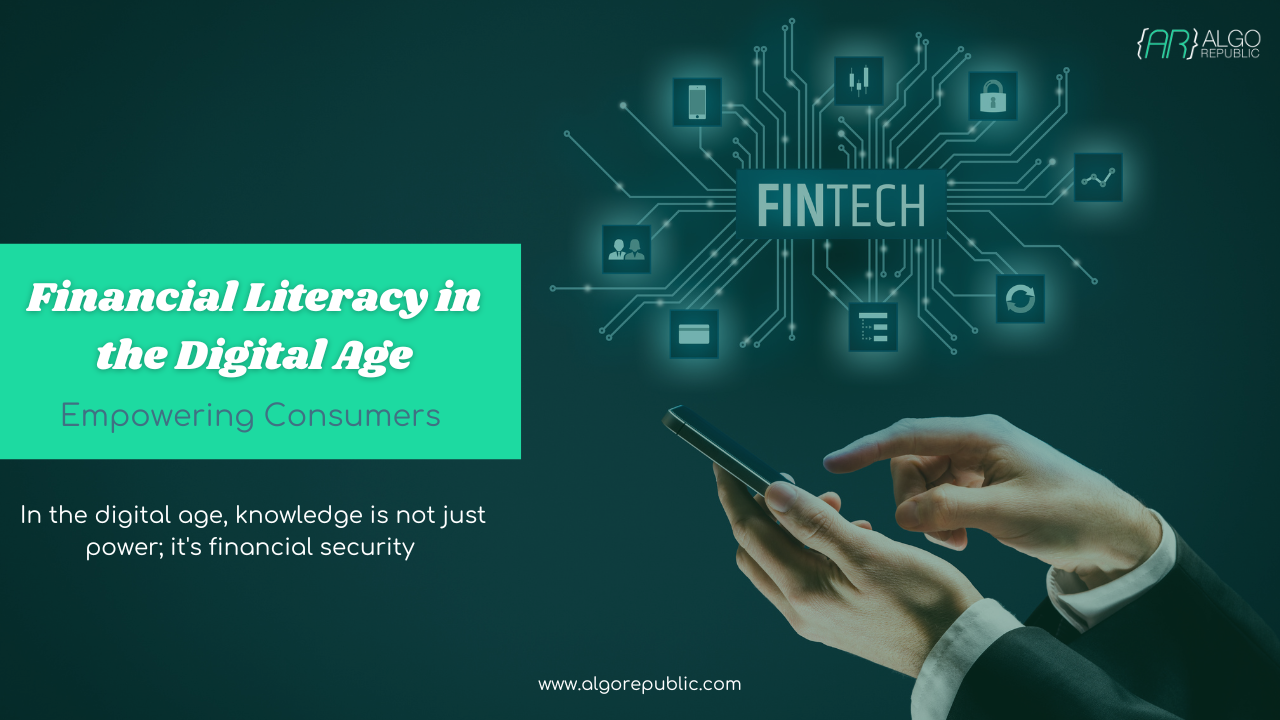Table of Contents
In the digital age, where financial transactions can be completed with a tap on a smartphone screen and investment opportunities abound on the internet, financial literacy has never been more crucial. Empowering consumers with the knowledge and skills to navigate this digital financial landscape is not just a choice; it’s a necessity. In this blog post, we’ll explore the significance of financial literacy in the digital era, its impact on individuals and communities, and the resources available to bolster it.
The Digital Transformation of Finance:
The financial world has undergone a significant transformation in recent years. Traditional brick-and-mortar banks are now joined by a plethora of fintech companies offering digital banking, mobile payment solutions, and investment platforms. While these innovations have made financial services more accessible and convenient, they’ve also added complexity to financial decision-making.
Why Financial Literacy Matters:
Avoiding Costly Mistakes: In the digital age, a single click can execute a financial transaction. Without a solid understanding of financial concepts, individuals are more susceptible to making costly mistakes, such as overspending, falling victim to scams, or making ill-informed investments.
Making Informed Choices: Financial literacy empowers individuals to make informed financial decisions. It enables them to choose the right bank account, manage debt wisely, invest for the future, and plan for retirement.
Protecting Against Scams: The digital realm is rife with financial scams and fraudulent schemes. A financially literate individual is better equipped to recognize warning signs and protect themselves from becoming victims.
Digital Financial Tools and Resources:
Fortunately, the same digital age that brings financial complexity also offers a wealth of resources to enhance financial literacy:
Mobile Apps: Numerous mobile apps provide budgeting, expense tracking, and investment management tools. These apps simplify financial management and educate users on responsible financial practices.
Online Courses: Several online platforms offer free or affordable courses on financial literacy. These courses cover topics like budgeting, saving, investing, and retirement planning.
Robo-Advisors: Robo-advisors, driven by algorithms and artificial intelligence, help individuals invest in a diversified portfolio. They often provide educational resources to help users understand their investment strategies.
Personal Finance Blogs: Countless blogs and websites are dedicated to personal finance. They offer valuable insights, tips, and advice on a wide range of financial topics.
The Role of Schools and Communities:
Financial literacy should not be limited to individual efforts. Schools and communities also play a pivotal role:
Incorporating Financial Education: Schools can integrate financial education into their curriculum, ensuring that students graduate with a basic understanding of financial concepts and skills.
Community Workshops: Community organizations can host financial literacy workshops and seminars to reach adults and families. These events can cover topics like debt management, homeownership, and retirement planning.
Online Communities: Online forums and social media groups dedicated to personal finance provide a platform for individuals to share knowledge and ask questions.
Empowering Vulnerable Communities:
Financial literacy is particularly critical for underserved and vulnerable communities. It can be a powerful tool for reducing wealth disparities. By equipping individuals in these communities with financial knowledge, we can help break the cycle of financial instability and empower them to achieve economic security.
The Digital Future of Financial Education:
As technology continues to evolve, so does the way we access financial education. Virtual reality (VR) and augmented reality (AR) could soon revolutionize financial education by creating immersive learning experiences. Imagine donning a VR headset to explore a virtual stock market floor or receiving AR notifications on your smartphone to guide you through your daily spending.
Conclusion:
In the digital age, financial literacy is a lifeline. It empowers individuals to navigate the complexities of digital finance confidently, protect themselves from financial pitfalls, and secure their financial future.
With the wealth of digital resources available and a commitment to incorporating financial education into schools and communities, we have the tools to empower individuals and ensure that financial literacy becomes a cornerstone of our digital society. Remember, in the digital age, knowledge is not just power; it’s financial security.
